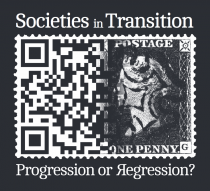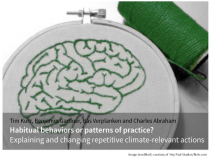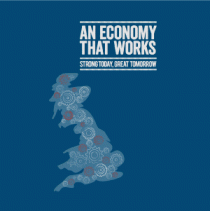- About
- Team
- Projects
- Children and the Environment
- ELiCiT (Exploring lifestyle changes in transition)
- Foundations for Sustainable Living
- HABITs
- Mapping Rebound Effects
- PASSAGE (Prosperity and Sustainability in the Green Economy)
- Policy Dialogue
- Price Responsiveness of Demand in Energy
- Resilience and Sustainable Lifestyles
- Sustainability Transitions in Food Systems
- Sustainable Living in Remote Rural Scotland
- Publications
- News
- Events
Publications
. Civil society roles in transition: towards sustainable food?. 2014;02 - 14. wp_02_-_14_-_rachael_durrant.pdf (18.34 MB)
wp_02_-_14_-_rachael_durrant.pdf (18.34 MB)
. Who rebounds most? Estimating direct and indirect rebound effects for different UK socioeconomic groups. slrg-wp-01-14.pdf (3.36 MB)
slrg-wp-01-14.pdf (3.36 MB)
. Who rebounds most? Estimating direct and indirect rebound effects for different UK socioeconomic groups. Ecological Economics. 2014;Volume 106:12–32. Available at: http://www.sciencedirect.com/science/article/pii/S0921800914002055.
. Commercial local area resource and emissions modelling – navigating towards new perspectives and applications. Journal of Cleaner Production . 2013;42 (2013) :241-253. Available at: http://authors.elsevier.com/offprints/JCLP3165/c036962e36f4c69a27c651a26ef70b87.
. Sustainable consumption and lifestyles? Children and youth in cities . In: World Social Science Report. World Social Science Report. OECD Publishing and Unesco Publishing; 2013:357-364. doi:10.1787/9789264203419-60-en.
. Turning lights into flights: Estimating direct and indirect rebound effects for UK households. Energy Policy. 2013:234–250. Available at: http://www.sciencedirect.com/science/article/pii/S0301421512010531.
. Estimating direct and indirect rebound effects for UK households. 2012;01-12. slrg_working_paper_01-12.pdf (1.32 MB)
slrg_working_paper_01-12.pdf (1.32 MB)
. Forecasting UK household expenditure and associated GHG emissions: outlook to 2030. RESOLVE Working Paper Series . 2012;02-12. resolve_wp_02-12.pdf (530.06 KB)
resolve_wp_02-12.pdf (530.06 KB)
. Forecasting UK household expenditure and associated GHG emissions: outlook to 2030. Ecological Economics. 2012; 84 :129–141.
. Time, gender and carbon: A study of the carbon implications of British adults' use of time. Ecological Economics . 2012;84. Available at: http://www.sciencedirect.com/science/article/pii/S0921800912003709.
. Missing carbon reductions? Exploring rebound and backfire effects in UK households. Energy Policy . 2011;39:3572-3581. 2011_druckamn_et_al_rebound_energypolicy.pdf (569.29 KB)
2011_druckamn_et_al_rebound_energypolicy.pdf (569.29 KB)














